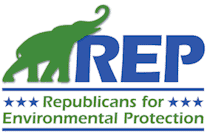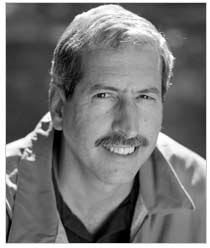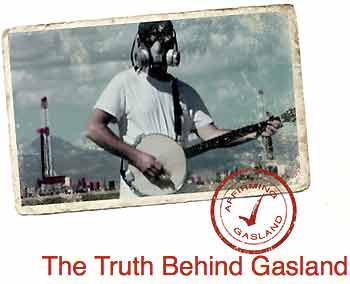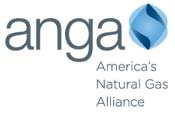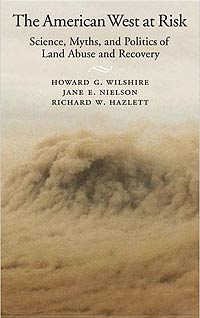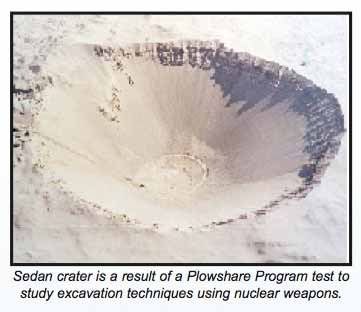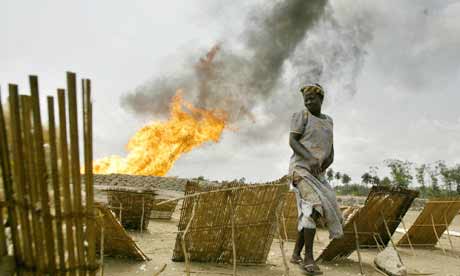Biblio
American Electric Power v. Connecticut, argued earlier this week, spurs debate over the role of the courts in addressing climate change.
The Court heard oral argument in American Electric Power v. Connecticut on Tuesday. The case raises questions about the role of the federal courts in addressing climate change–a subject that has interested academics as well. Professors David Markell and J.B. Ruhl address the issue empirically by reviewing every climate change case brought through December 31, 2009, to determine whether courts are serving as “battlefields” in the “climate fights.”
A forthcoming article in the Yale Law Journal by Benjamin Ewing and Douglas Kysar argues that climate change litigation illustrates how tort law can prod political actors to address social problems. And John Wood’s article in the Environmental Law Reporter runs through the arguments regarding displacement of public nuisance claims in the context of climate change. All three articles contend that climate change litigation raises important questions about the relationship between the judiciary and the political branches of government. We’ll soon learn the Court’s views on these questions as well.
See: SCOTUSblog | American Electric Power Co., Inc. v. Connecticut.
See: Markell, D., and J. B. Ruhl. “An Empirical Survey of Climate Change Litigation in the United States.” Envtl. L. Rep. News & Analysis 40 (2010): 10–644. Print.
See: Ewing, B., and D. A Kysar. “Climate Change, Courts, and the Common Law.” Print.
See: Wood, John. "Easier Said than Done: Displacing Public Nuisance when States Sue for Climate Change". (February 17, 2011). Environmental Law Reporter, Forthcoming. Available at SSRN: http://ssrn.com/abstract=1763359
Is America witnessing the birth of a new civil war? A polarization of political ideologies has paralyzed the democratic process and poisoned the relationship needed between politics, science, and hermeneutics.
This conservative organization's action page has form letters on a number of issues that Republican voters may send to their representatives to let them know that the party line may not be in their best interests.
Whether or not the debate is about jobs, public radio, oil and gas, or America's military footprint in the world; all Americans will benefit by the preservation of our resources. Conservative Republicans, Liberal Democrats, and everyone in between and on the fringes can work together to provide the regulatory leadership that demonstrates our respect for all life and a basic human right to clean water and air.
The "Big Lie" perpetrated by climate change doubters and insincerely debated by Global Warming Experts, warrants the recall of those representatives whose bullying is tantamount to treason and rends our union vulnerable to the extremist, irresponsible policy that cites Climate Change as a lie, endangering the health and safety of our children, and putting us at the brink of disaster. (Neil Zusman, 2011-03-17).
The Senate letter, "Congress Should Pass a 'Clean' Continuing Resolution" includes:
As a Republican voter, I urge you to support a fair 2011 continuing resolution that does not target environmental and conservation programs for a disproportionate share of budget cuts and is free of the anti-environmental riders that were, unfortunately, included in a resolution that the House passed on February 19.
I understand the need to correct the federal government’s fiscal imbalances, and it is fair to require reductions in environmental and conservation programs. It is not fair, however, to require these programs to shoulder a disproportionate share of the reductions. Nor should the resolution include the shockingly extreme riders that were in the House’s resolution. These riders would weaken bedrock environmental laws, including the Clean Air Act and Clean Water Act, as well as public lands protection and wildlife conservation.
Republicans were not elected to weaken laws that protect Americans’ health and protect our nation’s scenic, historic, and wildlife treasures for future generations.
Congressional Republicans must return to the traditional conservatism that values stewardship, saving for the future, and making frugal and careful use of our country’s natural as well as its fiscal resources.
Please support a continuing resolution that takes a rational approach towards correcting our nation’s fiscal imbalances, and avoids indulging the anti-environmental agendas of political extremists.
See: Smackdown: climate science vs. climate economics.
See: Climate Co-benefits and Child Mortality Wedges.
See: Snubbing Skeptics Threatens to Intensify Climate War, Study Says.
See: Climate Zombies Now Run The House.
See: GOP Budget Amendments Would Destroy Health, Economy, Planet
See: EPA chief faces hostile House GOP
See: Energy & Commerce Committee Investigates Potential Impacts of Hydraulic Fracturing
Our analysis suggests that while shale gas development poses significant risks to the environment, including faulty well construction, blowouts, and above-ground contamination due to leaks and spills of fracturing fluids and waste water, technologies and best practices exist that can help manage these risks.
Best practices are currently being applied by some producers in some locations, but not by all producers in all locations. Enforcing strong regulations is necessary to ensure broader adoption of these practices and to minimize risk to the environment. In addition, if increased shale gas development is to be undertaken responsibly, the cumulative risks of developing thousands of wells must be considered.
The report concludes that faulty well construction, in particular poorly cemented steel casings needed to isolate the gas from shallow formations, as well as above-ground contamination due to leaks and spills of fracturing fluids and waste water, pose more significant risks to the environment.
In addition, continued study and improved communication of the environmental risks associated with both individual wells and large scale shale gas development are essential for society to make well-informed decisions about its energy future.
"Although the technologies, best practices, and regulations that can help minimize these risks exist, they have not yet been universally adopted," says Worldwatch Fellow and co-author Saya Kitasei. "Experiences in Colorado, Wyoming, Pennsylvania, and New York demonstrate that strong public pressure exists for stricter oversight."
Mark Zoback is one of the scientists on the short list for the upcoming EPA study.
The Worldwatch Institute is an independent research organization recognized by opinion leaders around the world for its accessible, fact-based analysis of critical global issues. The Institute's three main program areas include Climate & Energy, Food & Agriculture, and the Green Economy.
See: Flavin, C., and S. Kitasei. The Role of Natural Gas in a Low-Carbon Energy Economy. Briefing paper. Natural Gas and Sustainable Energy Initiative. Washington, D.C.: Worldwatch Institute, 2010. (PDF, 617kb)
From Sourcewatch:
Immediately upon the film's release, Energy In Depth issued a paper claiming to "debunk" the film's documentary evidence.
Energy in Depth (EID) is a pro-oil-and-gas drilling industry front group formed by the American Petroleum Institute, the Petroleum Association of America and dozens of additional industry organizations for the purpose of denouncing the FRAC Act proposed by Colorado U.S. Rep. Diana DeGette to regulate underground fracking fluids.
EID has crafted an entire campaign to delegitimize Fox's film, coining itself "Debunking Gasland." Many Facebook and Google users have even reported "Debunking Gasland" ads popping up on those respective websites.
Josh Fox has responded to every claim in "Debunking Gasland" put forth by Energy In Depth in a piece titled "Affirming Gasland."
History of regulating hydraulic fracturing under the Safe Drinking Water Act (SDWA)
From Affirming Gasland, "Supplemental Reading Section", p. 24.
The Safe Drinking Water Act requires EPA to promulgate regulations for states to administer these provisions of the law in order to protect underground sources of drinking water. However, although the SDWA gave the EPA the authority to regulate underground injection practices, Congress also directed that the EPA should not prescribe unnecessary regulation on oil- and gas- related injection.
Therefore, after the Safe Drinking Water Act passed, the EPA erroneously took the position that hydraulic fracturing did not fall within the regulatory definition of underground injection as provided in the Act.
In 1997 the 11th Circuit Court of Appeals laid the matter to rest when it conclusively ruled in LEAF v EPA, 118 F.3d 1467 (11th Cir. 1997) that hydraulic fracturing activities constituted “underground injection” under Part C of the SDWA.
As a result of the court’s ruling, in 1999 the state of Alabama amended its rules and made hydrofracking subject to the provisions of Part C of the SDWA by requiring Class II permits for each hydrofracking well.
Cheney’s Halliburton (a prime developer and leading practitioner of hydraulic fracturing) began lobbying Washington to exempt fracturing from regulation under the Safe Drinking Water Act.
Then in 2001, during his second week in office, George W. Bush created the Energy Task Force, with Vice President Dick Cheney as chairman. The mission of the task force aimed to “develop a national energy policy designed to help the private sector.” Its final report included a recommendation to exempt fracturing from regulation. Cheney removed the exemption from the draft only after being pressed by EPA chief Christie Whitman.
The exemption surfaced again in the Bush/Cheney Energy Bill of 2003 which did not pass, and reemerged one final time, in the Energy Policy Act of 2005, thanks, in part, to the efforts of Congressmen James Inhofe of Oklahoma and Joe Barton of Texas. To avoid the effect of the ruling in LEAF v EPA, Sec 322 of the Act specifically provides that the term “underground injection” excludes the underground injection of fluids pursuant to hydraulic fracturing operations related to oil, gas, or geothermal production activities. This clause from the law is actually photographed in Gasland at 31:42.
The 2005 Energy Policy Act also altered the Clean Water Act stormwater provisions. Pub.L. No. 109-58, § 323, 119 Stat. 694 (codified as amended at 33 U.S.C. § 1362(24). Section 323 modified the Clean Water Act's definition of an oil and gas exploration and production activity to include oil and gas construction activities. Because the Clean Water Act mandates that the EPA not require a stormwater permit for oil and gas exploration and production activities, it has been argued that the change in the Energy Policy Act of 2005 excluded oil and gas construction activities from stormwater permit coverage, without regard of the size of acreage disturbed.
Previous laws exempted oil and gas drilling, known as oil and gas exploration and production, from Superfund (CERCLA) and RCRA (hazardous waste). CERCLA includes substances that are elements of petroleum as hazardous in Section 101(14), yet crude oil and petroleum are specifically exempt from coverage under the last clause of the section. Thus, hazardous chemicals that would otherwise fall under the ambit of CERCLA are immune from the statute when encompassed in petroleum or crude oil. Likewise, the Solid Waste Disposal Act (SWDA) of 1980 exempted oil field wastes from Subtitle C of the RCRA.
Oil and gas drilling is not typically covered by Clean Air Act permitting since EPA’s CAA regulations do not allow EPA to aggregate or group a set of wells as a single source of air emissions. EPA has proposed rules that if promulgated would allow EPA and the states to aggregate air emissions coming from one company when the facilities are connected to one set of piping.
Some oil and gas machines emit large enough air emissions to be subject to air permit requirements, for example gas dehydradation units emitting over 10 tons per year of volatile organic compounds (VOCs) and gas compressions engines emitting over 50 tons of NOx per year.
However, the industry remains mostly unregulated under this statute by using many smaller compressors and dehydrators which individually emit less VOCs than the limits. If these units were to be aggregated and counted as one larger source (which they should be, in our view) the regulations would be in effect. In addition, neither the diesel engines used to drill nor the volatiles that come off the reserve pits are subject to CAA permit regulations.
For a more complete list of these exemptions please see the following websites:
Earthworks. (2007). "The Oil and Gas Industry’s Exclusions and Exemptions to Major Environmental Statutes."
NRDC. (2007). "Drilling Down: Protecting Western Communities from the Health and Environmental Effects of Oil and Gas Production."
NRDC. (2007). "Toxic Oil and Gas Production Gets a Free Pass to Pollute."
The Energy Policy Act negated the effect of the Alabama LEAF case by expressly defining HF as not subject to the SDWA, provided that HF fluids did not contain diesel; HF that contains diesel remains subject to SDWA limitations.
See: IADC. "Alabama lawsuit poses threat to hydraulic fracturing across U.S." Drilling Contractor. Jan/Feb. 2000.
See: Gasland vs Big Oil and Gas
See: Gasland - The Debate
See: Bushwhacked : Life in George W. Bush's America
See: U.S. Environmental Protection Agency (EPA): Hydraulic Fracturing Study (2010-2012)
Expert reports and selections of news accounts and analysis of the breaking news concerning the meltdown of Japan's nuclear reactors ongoing since March 13, 2011.
To respond to questions we’ve been getting, we’re developing a set of responses to “frequently asked questions.” The FAQ is located here: "Nuclear Reactor Crisis in Japan FAQs", and we will continue adding to it through the week.
Follow Google News on 'meltdown'.
Contact All Things Nuclear.
A project of the Union of Concerned Scientists.
America's Natural Gas Alliance exists to promote the economic, environmental and national security benefits of greater use of clean, abundant, domestic natural gas.
We represent 34 of North America's largest independent natural gas exploration and production companies and the leading developers of the shale plays now transforming the clean energy landscape.
See ANGA's rebuttal of Josh Fox's Gasland.
The membership of American Association of Petroleum Geologists (AAPG) includes geologists, geophysicists, CEOs, managers, consultants, students and academicians. The purpose of the organization is to foster scientific research, advance the science of geology, promote technology and inspire high professional conduct.
Landmen constitute the business side of the oil and gas and mineral exploration and production team. "The American Association of Professional Landmen is a voluntary international professional organization that unites approximately 12,000 landmen and land-related persons through professional development and service."
![]()
"The American Petroleum Institute (API) is the only national trade association that represents all aspects of America’s oil and natural gas industry. Our nearly 400 corporate members, from the largest major oil company to the smallest of independents, come from all segments of the industry. They are producers, refiners, suppliers, pipeline operators and marine transporters, as well as service and supply companies that support all segments of the industry."
See API Ads:
Increased production of oil and natural gas can help rebuild America’s economy by creating new jobs and generating more than $1 trillion for federal, state and local budgets.
Let's check the facts. The costs of spill clean-up, global warming, and devastated marine ecosystems remain undocumented.
See also: Put America to Work. (2009). Scroll down and roll over the interactive U.S. map and click on any state to read the same copy with plug-in paragraphs state by state.
"The American West at Risk emphasizes the need for genuine concern for our precious soils, freshwater, and other environmental resources. As the authors document, we should be making every effort to conserve and protect all our vital natural resources, which indeed support human life."--David Pimentel, Cornell University
"If you wish to be informed, enraged, enlightened, and appalled about the American west, this is the book to read."--Journal of Environmental Quality
See: Gasbuggy Nuclear Test Site.
The Gasbuggy Nuclear Test Site is the location of a 1967 underground nuclear explosion, conducted to test the viability of using a nuclear device to aid in natural gas extraction. It was part of the Plowshare Program, the program to develop peaceful uses of nuclear weapons, and was the first use of a nuclear explosion for industrial purposes.
See: Google-eye view of a nuclear test site - Boing Boing
See: Appendix 7, p. 399.
Plowshare can help mankind reshape the earth into a Garden of Eden by overcoming the forces of nature.
-Glenn Seaborg, Man and Atom (1971)
Description
The American West at Risk summarizes the dominant human-generated environmental challenges in the 11 contiguous arid western United States - America's legendary, even mythical, frontier. When discovered by European explorers and later settlers, the west boasted rich soils, bountiful fisheries, immense, dense forests, sparkling streams, untapped ore deposits, and oil bonanzas. It now faces depletion of many of these resources, and potentially serious threats to its few "renewable" resources.
See: Fracking for Natural Gas | The American West at Risk Blog.
See: Environment: Project Dubious (1973). Time.
See: Adam Lederer. Project Wagon Wheel.
Brown, C. F. “A history of the development of the Pictured Cliffs Sandstone in the San Juan basin of northwestern New Mexico.” Cretaceous and Tertiary rocks of the southern Colorado Plateau: Four Corners Geological Society Memoir (1973): 178–184.
Schneider, Keith. New York Times. Aug. 26, 1990. "In the Trail of the Nuclear Arms Industry."
"In the Trail of the Nuclear Arms Industry; What's Left Behind." Listing of sites. Contaminated processing plants, laboratories, nuclear reactors and testing grounds that were part of the nuclear weapons industry.
Jones, S. “Elimination Report: Project Rio Blanco.” U.S. Department of Energy | Office of Legacy Management, October 15, 1985.
Heiss, K. P. U.S. Atomic Energy Commission. Speical Report. Aug. 31, 1967. “The Economic Potentials of Natural Gas Production Stimulation by Nuclear Explosions.” Princeton: Mathematica Inc. (1967). (PDF, 8MB).
Chedd, Graham. “Plowshare's death rattle at Rio Blanco.” New Scientist 8, no. 1973. New Scientist (March 8, 1973): 544-545.
Download: Bombs for Peace Moratorium Ends- Testing Begins (2.5 MB)
The American West at Risk chronicles the road our nation has taken to its current catastrophic environmental state. The authors tour the U.S. to discuss challenges our nation faces & examine viable solutions.
Anadarko is among the largest independent oil and natural gas exploration and production companies in the world, with approximately 2.3 billion barrels of oil equivalent (BBOE) of proved reserves at year-end 2009.
See: Cliford Kraus. (2008). New York Times. "There’s Gas in Those Hills".
Andarko, BP, and Transocean have each blamed the other for responsibility in the The Deepwater Horizon oil spill (also referred to as the BP oil spill, the Gulf of Mexico oil spill, the BP oil disaster or the Macondo blowout).
See: Deepwater Horizon Committee Hears From Oil Industry Executives
BP’s partners in the Macondo well–Anadarko Petroleum and Mitsui–have so far refused to pay any costs for the spill, claiming that BP’s gross negligence means it is 100% liable.
If investigations exonerate BP, those companies will be liable for billions of dollars. There are particular doubts over whether Anadarko could afford to pay its full share.
The company’s credit rating was cut to junk level in June.
A federal proposal laying out new standards for a controversial natural-gas drilling practice called hydraulic fracturing likely won’t be issued until after the 2012 elections, an energy analyst said Thursday.
The practice is certain to be an election issue for lawmakers from states in which hydraulic fracturing is prevalent, but the timing of the standards would take that hot-button issue off the table.
Comment:
"This new process is a Godsend…BY Grandma" on 02/11/2011 at 20:52
The federal government must step in and start regulating fracking. Hydraulic fracturing should NOT be exempt from the Safe Water Drinking Act and Clean Water Act. This industry is killing people by contaminating aquifers across the nation. Fracking is shaping up to be the cause of the biggest environmental and public health disaster this country has ever witnessed. 2012 is too long to wait to start correcting this horrific wrong that has been committed against the people of the United States.
See: Toledo. Free Press. "Kasich says Marcellus Shale could be ‘godsend’ for Ohio." Toledo. Free Press. 2011-01-01.
See: U.S. Congress. Committee on Space, Science, and Technology. "Hearing Highlights Lack of Objectivity in Draft EPA Fracking Study--No Evidence of Drinking Water Contamination from Fracking, Witnesses Say". May 11, 2011
Far from the Gulf of Mexico, campaigners are accusing energy companies of destroying land and livelihoods in the search for increasingly scarce resources.
The eyes of the world are on BP after the disaster that left oil spewing into the Gulf of Mexico at the rate of 50,000 barrels a day. But campaigners accuse Big Oil of an appalling track record elsewhere in the world, saying it leaves a trail of devastation in its wake.
From Nigeria to Kazakhstan in Central Asia, and Colombia and Ecuador in South America, the oil majors stand accused of a blatant disregard for local communities and the environments in which they operate.
With demand for energy expected to surge as industrialisation accelerates in China, India and Brazil, critics say oil companies are taking ever-increasing risks to cash in on yet another bonanza...
...Kate Allen of Amnesty International says: "The result of oil exploration, extraction and spills is that many people in the Niger Delta have to drink, cook with, and wash in polluted water; they have to eat contaminated fish – if they are lucky enough to still be able to find fish – and farm on spoiled land."
She adds: "After oil spills, the air reeks of pollutants. Many [people] have been driven into poverty, and because they can't make Shell accountable for its actions, there is enormous distrust between the group and local people."
See: Nigeria's agony dwarfs the Gulf oil spill. The US and Europe ignore it | Environment | The Observer
Ardent is a privately held, independent oil and gas company headquartered in Pittsburgh, Pennsylvania.
Ardent is mentioned in Item 11 of an online petition, "Remove Department of Environmental Conservation Commissioner Pete Grannis and Director of the Division of Mineral Resources Bradley J. Field". In the form of a letter to New York's Governor Patterson, this petition is found at the website Catskill Citizens for Safe Energy.
Although Ardent addressed a problem caused by their drilling, residents questioned how they could afford the annual maintenance costs for the high-tech purification systems, which improved the quality of their water supply at a cost of between $10,000 and $14,000.
Dear EPA - Think Little
For most of the history of this country our motto, implied or spoken, has been Think Big...Thinking Big has has led us to the two biggest and cheapest political dodges of our time: plan-making and law-making. The lotus-eaters of this era are in Washington, D.C., Thinking Big...
But the discipline of thought is not generalization, it is detail, and it is personal behavior. While the govenment is "studying" and funding and organizing its Big Thought, nothing is being done.
In "Think Little", (p. 81, 1970), Berry says that, "the movement to preserve the environment will be seen to be, as I think it has to be, not a digression from the civil rights and peace movements, but the logical culmination of those movements..."
We didn't cause strip-mining or sell our natural heritage to the highest bidder, but by not knowing how it's done we are guilty for we connive in them by our ignorance.
...the environmental crisis should make it dramatically clear, as perhaps it has not always been before, that there is no public crisis that is not also private.
...the environmental crisis rises closer to home. Every time we draw a breath, every time we drink a glass of water, every time we eat a bite of food we are suffering from it. And more important, every time we indulge in, or depend on, the wastefulness of our economy - and our economy's first principle is waste - we are causing the crisis.
...Our model citizen is a sophisticate who before puberty understands how to produce a baby, but who at the age of thirty will not know how to produce a potato.
So far as I can see, farming is considered marginal or incidental to the economy of the country, and farmers, when they are thought of at all, are thought of as hicks and yokels whose lives do not fit into the modern scene...The corporations and machines that replace them will never be bound to the land by the sense of birthright and continuity, or by the love that enforces care. They will be bound by the rule of efficiency, which takes thought only of the volume of the year's produce, and takes no thought of the slow increment of the life of the land, not measurable in pounds or dollars, which will assure the livelihood and the health of the coming generations.
See: U.S. Environmental Protection Agency (EPA). Draft Plan to Study the Potential Impacts of Hydraulic Fracturing on Drinking Water Resources. Washington, D.C.: U.S. Environmental Protection Agency (EPA), 2011. (PDF, 140 pp) Web.
In total, EPA received 5,521 comments that were submitted electronically to hydraulic.fracturing@epa.gov or mailed to EPA. This appendix provides a summary of those comments.
More than half of the electronic comments received consisted of a form letter written by Energycitizens.org and sent by citizens. (EPA Draft Plan, Appendix B, p. 90, 2011).
Indivdualism-write your own damn letter!
The last thing we need in this world are suicidal farmers who have gone cheap for power. That is what we seem to be getting in at least 34 states where farmers have leased their land.
When the New York Times reports that some environmentalists favor hydraulic fracturing and clean natural gas over other forms of energy, it is clear to me that we need to ask, which environmentalists, and do the kind of work that encourages all of us to know what it means to grow a potato. (Neil Zusman, 2011-02-23 6:44 P.M., Ithaca, New York.)
Individualism is going around these days in uniform, handing out the party line on individualism.
See: Beware The Green Dragon! | Right Wing Watch
See: WolfeNotes | On the Threshold of a Fracking Nightmare
See: EPA | Adopt Your Watershed
EPA's Adopt Your Watershed program challenges you to serve your community by taking part in activities to protect and restore your local watershed.
See: Community Science Institute. Ithaca, New York.
The nonprofit Community Science Institute (CSI) organizes and empowers citizen volunteers to monitor water quality in streams, lakes, ponds and groundwater as a critical first step in protecting water resources.







